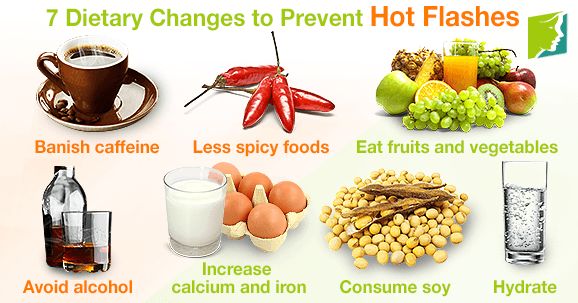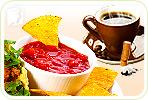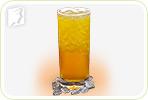Affecting more than 75% of American women during menopause, hot flashes are the most common symptom of menopause. Sometimes referred to as a hot flush, they are a sensation of increased heat, leading to sweating and a flushed face.
The full causes are still not fully understood, though many people believe it's related to hormonal fluctuations. Duration and severity changes from woman to woman. There are multiple triggers for hot flashes including smoking, tight clothing, and stress, however there are also a number of treatment options.
Banish Caffeine
Soft drinks, tea and coffee should be monitored for their caffeine level, and if possible, removed from your diet, since caffeine is a well-known trigger for many menopause symptoms.
However, some teas - such as green tea or herbal teas -have been effective in dealing with and preventing hot flashes during menopause.
Check Your Alcohol Intake
While in general there's nothing wrong with having a drink now and then, you may need to keep an eye on your alcohol intake. Generally speaking, alcohol and menopause don't mix. Alcohol can cause and significantly worsen hot flashes and other menopause symptoms.
Maintain Hydration
Drinking enough water is important, especially when trying to prevent hot flashes. Between six to eight glasses a day is usually best for maintaining a good level, but if you feel you need to drink more, trust your body.
Consume Less Spicy Foods
During menopause your body's cooling system fluctuates like your hormones. With this in mind, you should be lowering your intake of spicy foods. Spicy foods are triggers, so by reducing them can help prevent hot flashes.
Increase Calcium and Iron
Studies show that hot flashes can be alleviated by increased calcium and iron intake. Five of the best foods for calcium are: milk (low fat), yoghurt, broccoli, clams and sardines. For iron, try: poultry, fish, eggs, (some) breads, and nuts.
Add Soy to Your Diet
Increasing soy levels in your body has been known to decrease the frequency and severity of hot flashes. Soy is found in multiple foods, such as types of beans, milks, and tofu.
Ensure That You Have Enough Fruits and Vegetables
Full of antioxidants, fiber and water, they are known to help prevent hot flashes. Vegetables also help increase iron levels in the body, which is important.
Recommendations
Treating hot flashes is a huge concern for many menopausal women, and there are multiple ways that you can try this. If you do want to learn more, click on the articles below for more information on how to prevent hot flashes.
Sources
- "Hot flashes ... in January". Canadian Medical Association Journal. 2004: 170 (1)
- Miller, Heather and Rose Maria Li, M.D. "Measuring Hot Flashes: Summary of a National Institutes of Health Workshop". Conference report. Mayo Clinic. June 2004: 79.
- Sikon, Andrea and Holly Thacker M.D. "Treatment for Menopausal Hot Flashes". Cleveland Clinic Journal of Medicine. July 2004: 71 (7).




